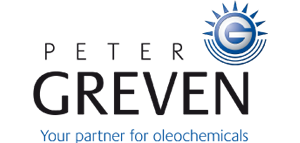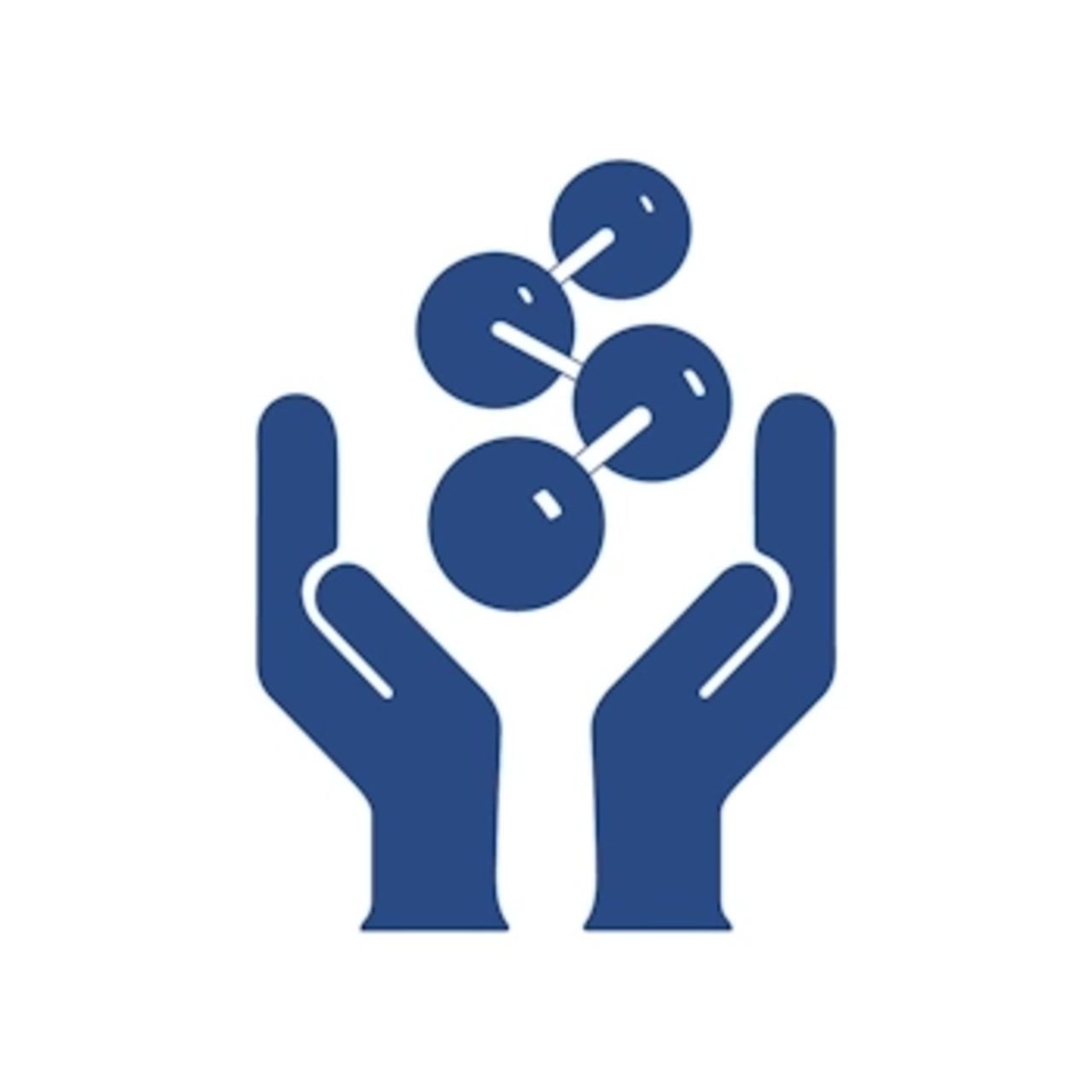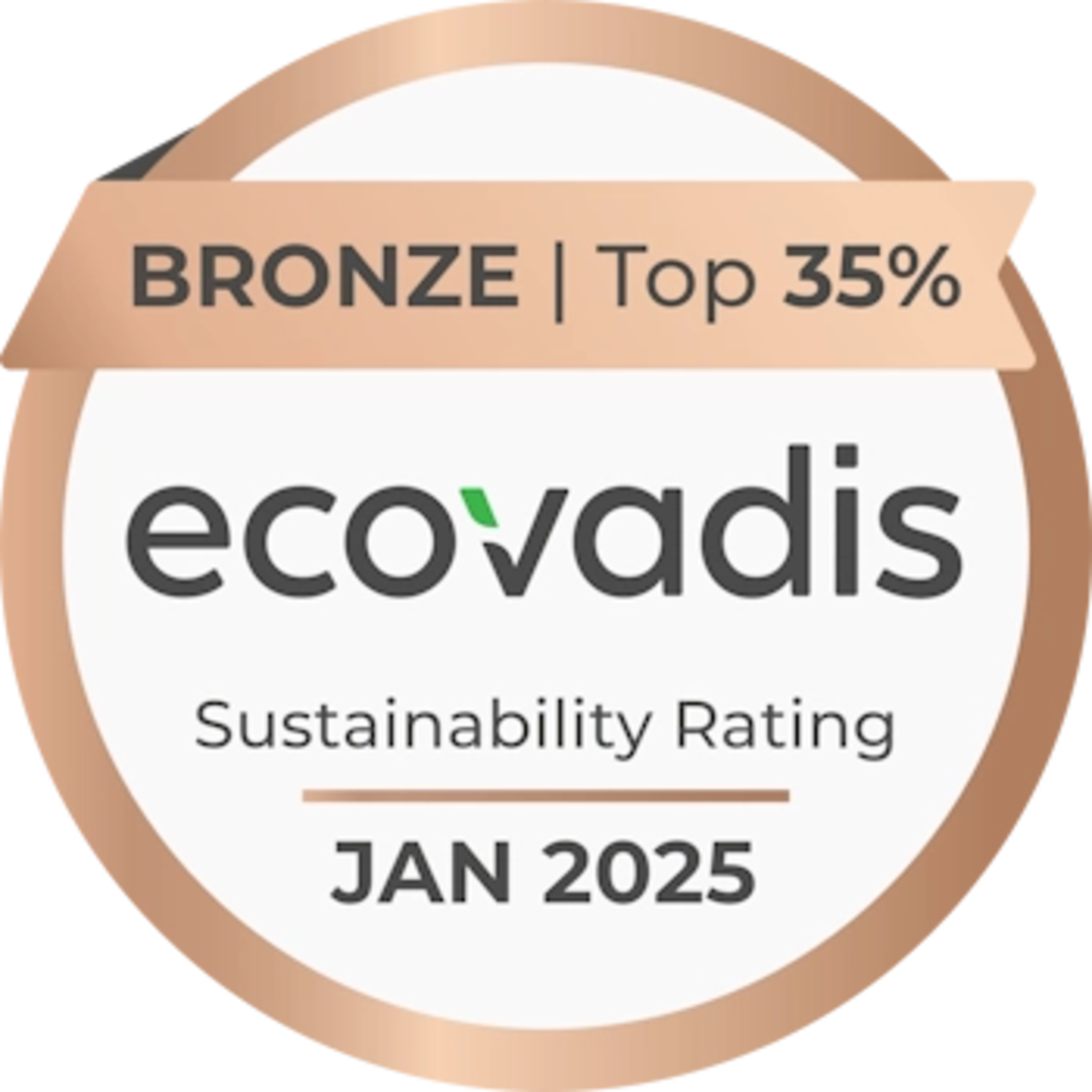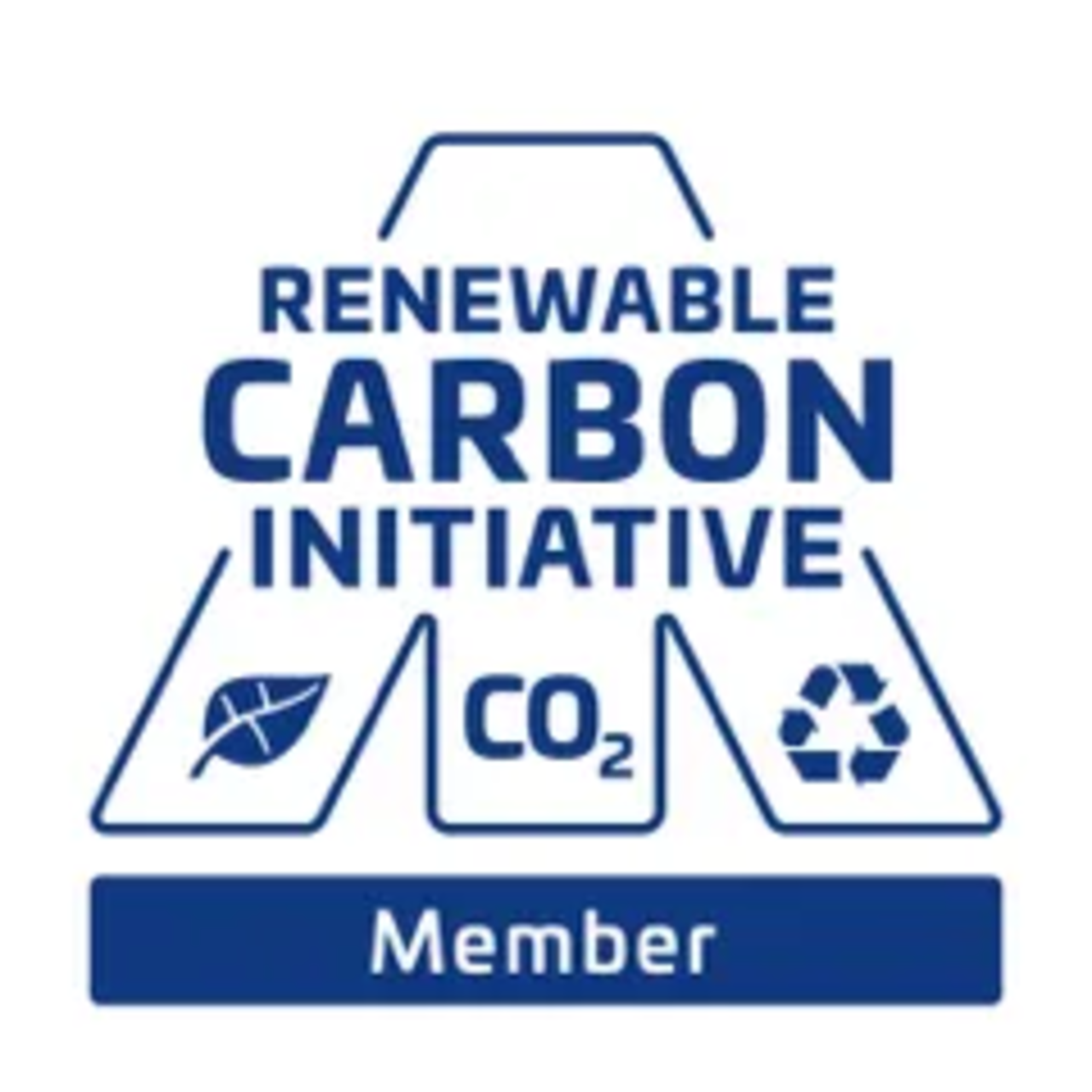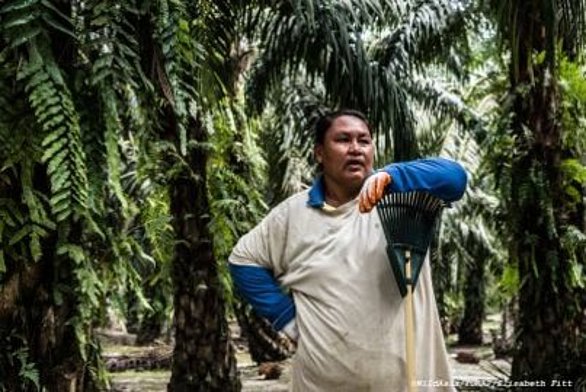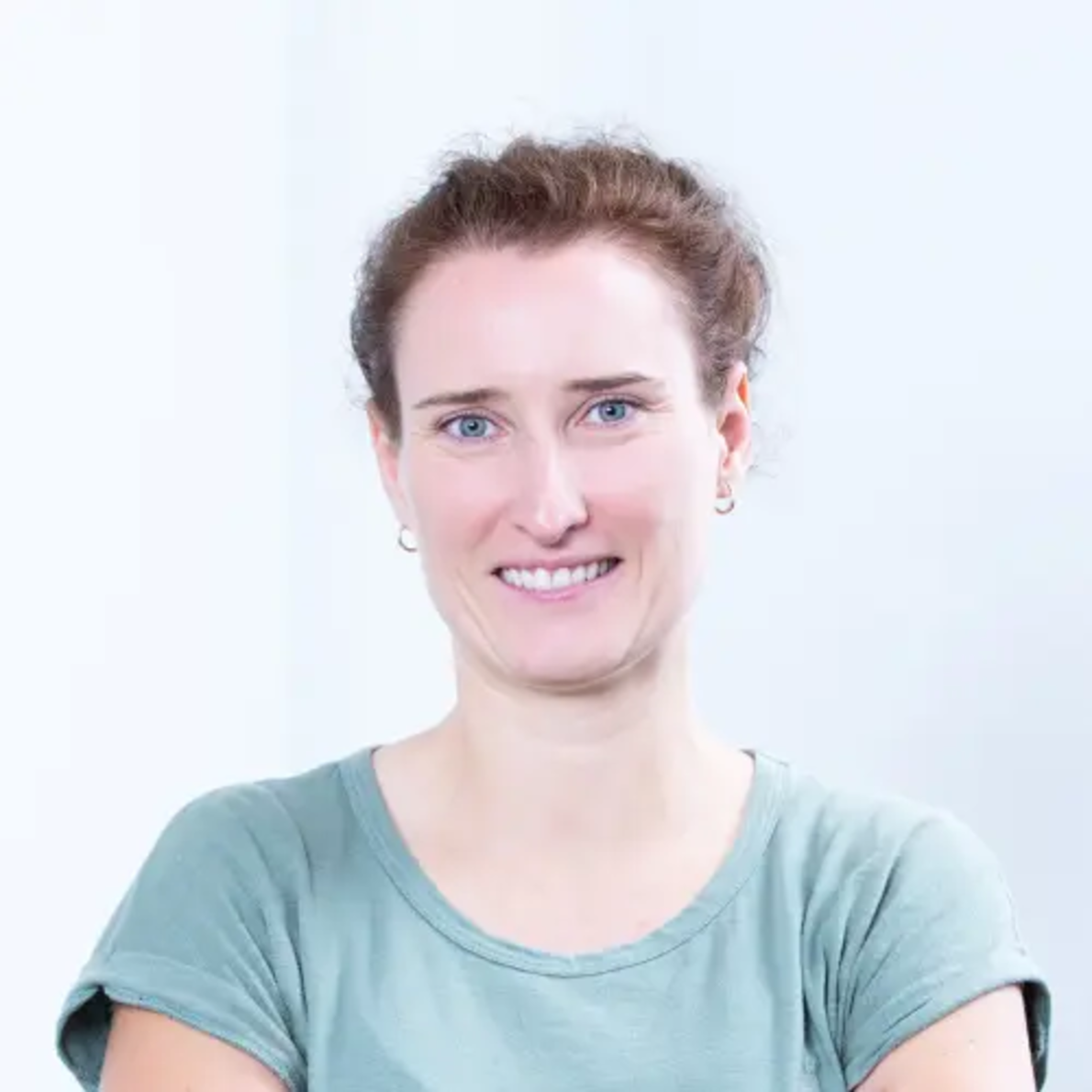
Sustainability
Sustainability is a key aspect for us. On the one hand, because the responsible use of natural resources has been a fundamental aspect of our corporate philosophy for 100 years and all our products are based on natural, renewable raw materials. On the other hand, we are aware of our entrepreneurial responsibility and want to contribute to a sustainable economy. With all our decisions we take care not to lose sight of sustainability and to continue to improve in this respect.
For us, there are two fundamental aspects: Sustainable entrepreneurial actions and sustainable raw materials.
SUSTAINABLE ENTREPRENEURIAL ACTION
We support the United Nations Sustainable Development Goals (SDGs) and want to contribute to achieve them.
Our focus is put on the following SDGs:


We are member of the Renewable Carbon Initiative (RCI).
We signed the Responsible Care Global Charter of the International Council of Chemical Associations (ICCA).
Our R&D department continuously works on new, innovative solutions.
We support the research work at universities by research cooperations.


We determine the carbon footprint on corporate and product level.
Our climate protection strategy is oriented towards the science-based targets.
RESPONSIBLE CARE GLOBAL CHARTER
Responsible Care is the international, voluntary initiative of the International Council of Chemical Associations (ICCA). The Responsible Care Global Charter sets out the various aspects of responsible corporate governance to which the signing companies commit. Since 2018, we are a part of this initiative for sustainable corporate governance as well.
ECOVADIS
Our activities all around sustainability are evaluated on a yearly basis by EcoVadis since 2013. This rating gives us external feedback on how well we integrated sustainability within our entrepreneurial activities. With our last rating we achieved bronze status. Therefore, we are part of the 35% of top performing companies rated by EcoVadis.
Climate Protection Strategy
With our climate protection strategy, we support the goals of the Paris Agreement and the EU Green Deal. We continuously work on reducing our greenhouse gas emissions even as production grows, and we will report on our progress transparently.
On our path to climate neutrality we have set ambitious science-based quantitative targets which are published on the homepage of the Science Based Targets initiative (SBTi). Following the SBTi, we aim to reduce our Scope 1 and Scope 2 CO2 emissions at our sites by 46 %, compared to the base year 2019, by 2030. Additionally, we are also striving to measure and reduce emissions from our supply chain (Scope 3).

Regarding our locations, we have set the goal of achieving net-zero emissions by 2030 at our subsidiary for professional skin care in Euskirchen. At our headquarters in Bad Münstereifel we plan for net-zero emissions by 2035 and globally within the corporate group by 2050.
To achieve these goals, we have developed a concrete transition plan. As decarbonization levers, we have identified the use of renewable energy as well as electrification within our production and have incorporated corresponding measures into our transition plan.
To monitor the set goals and their achievement, we track the emissions from our sites and calculate the corporate carbon footprint for the entire group each year. The calculation is based on the GHG Protocol Standards, has undergone independent external verification by the Nova Institute and includes Scope 1, 2, and 3 emissions. For Scope 2 emissions, we consider both the location-based and market-based approaches.
The current status of objectives achievement is as follows:
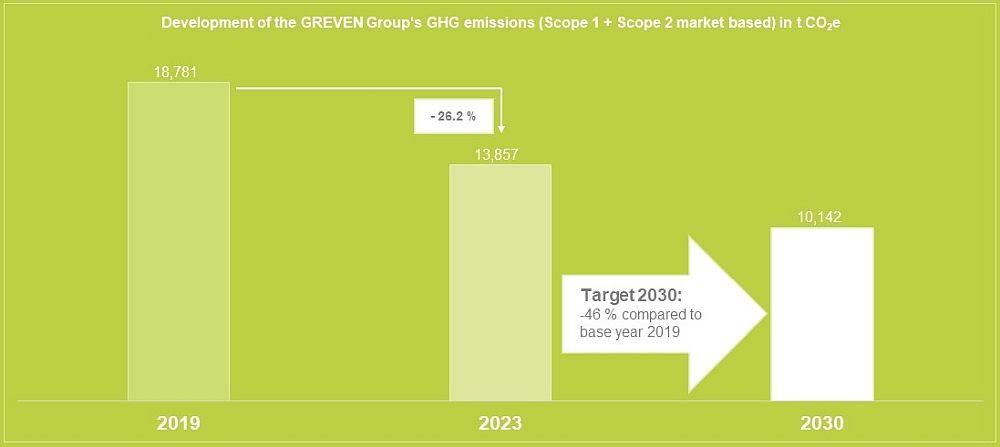
Measures to achieve these goals include:
- Reducing direct emissions at our sites (Scope 1) through continuous improvement of energy efficiency as part of our ISO 50001 certified energy management system.
- Transitioning the site’s energy supply from fossil sources to renewable energy.
- Converting company vehicles to electric cars. Currently, a large portion of newly registered company vehicles already has an electric drive. By 2030, 100 % of our company vehicles will be electric cars. We are also supporting this transition with an appropriate charging infrastructure at our location.
- Reducing indirect emissions from energy procurement by increasing the use of renewable energy sources through the self-generation of green electricity or purchasing green electricity from the market. At the beginning of 2023, we switched our entire electricity consumption to green electricity.
- Reducing waste volumes through internal waste management while simultaneously supporting a circular economy.
In all projects, we ensure that emissions are minimized as much as technically and economically feasible, aiming for deep decarbonization. Despite all our efforts, there will likely be a residual amount of emissions that cannot be avoided for the time being. These emissions will need to be offset through carbon removal measures, which we will evaluate and implement at the appropriate time.
In addition to Scope 1 and Scope 2 emissions, we also focus on emissions and general environmental impacts along our supply chain that fall under Scope 3 (upstream). Thus, we gradually calculate the product carbon footprints (PCFs) for our products and prepare life cycle assessments (LCAs) and environmental product declarations (EPDs).
As a company in oleochemistry, our business model is based on producing sustainable products using natural oils and fats. We already predominantly produce based on bio-based raw materials, often providing emissions-reduced alternative to fossil-based counterparts. Furthermore, we ensure that we use sustainably certified qualities that can demonstrate a significantly lower footprint compared to conventional material.
Through the transition from conventional goods to certified palm (kernel) oil and its derivatives, we have already saved 22,000 tons of CO2e emissions.*
By no later than 2030, we aim to switch 100 % of our palm (kernel)-based raw materials to certified goods. This corresponds to an additional saving of 60,000 tons of CO2e.
Additionally, we aim to further increase the renewable portion of our products and continuously evaluate bio-based, recycled, or CO2-based alternatives for our few not bio-based raw materials. With this, we want to align our product portfolio even more with renewable raw materials, products with a low product carbon footprint, high environmental compatibility, and durable, biodegradable, and recyclable solutions for the circular economy.
(*Source: Study Schmidt, De Rosa 2019)
Sustainable Raw Materials
In addition to our commitment for sustainable entrepreneurial activities we also consider it very important to further increase the sustainability with regard to our raw materials. Our Sustainable Procurement Policy summarizes the activities and goals for sustainable procurement.
RENEWABLE CARBON INITIATIVE
The goal of Renewable Carbon Initiative (RCI) is to support the switch from fossil based to renewable carbon for organic chemicals and materials. We believe that the conversion to renewable carbon is only possible through close collaboration along the whole supply chain and therefore joined RCI in 2022.
PALM OIL SOURCING POLICY
Within our Palm Oil Sourcing Policy we acknowledge our role in the palm oil industry. We support the path to full sustainability and committed to participate this journey. At the same time, this policy as well as our Code of Conduct also apply as ethical guidelines for our suppliers.
Traceability
The traceability of palm oil is gaining in importance as well. Together with our suppliers we work to improve the traceability throughout the palm oil supply chain. The goal for the future would be the ability to trace the material back to the plantation.
The recent milling list can be found in our RSPO profile: Peter Greven GmbH & Co. KG.


RSPO CERTIFIED PALM OIL
The Roundtable on Sustainable Palm Oil (RSPO) is a non-profit organisation and developed international standards for sustainable palm oil. They implemented different certification schemes in order to make the transformation along the supply chain as transparent as possible.
Peter Greven Nederland was the first metal soap producer to receive the RSPO SCCS certificate for the production of Mass Balance (MB) certified products in 2013.
Today all sites of Peter Greven Group are RSPO certified and offer Mass Balance (MB) certified products. Peter Greven Nederland additionally provides a bunch of RSPO Segregated (SG) certified products.
FONAP
The Forum for Sustainable Palm Oil (FONAP) pursues two main objectives: On the one hand, they want to increase the use of sustainably produced palm oil by the voluntary commitment of the member companies. On the other hand, they aim to develop and optimise accepted certification schemes, such as RSPO.
Since 2017, also derivative manufacturers like us are able to participate the FONAP as a “Supporter”. We immediately seized this opportunity and are a supporter of FONAP with Peter Greven Nederland, our subsidiary for Life Science, since that time.
